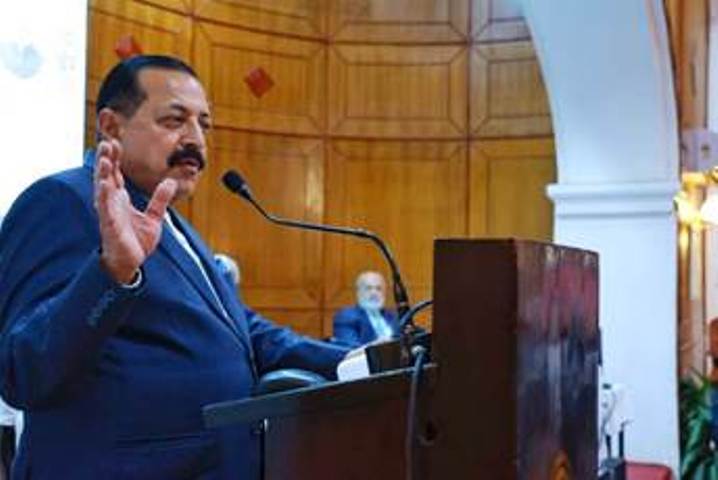During the National Learning Week, Dr Jitendra Singh, Union Minister of State (Independent Charge) for Science and Technology and Minister for Earth Sciences, emphasized the critical need for public-private sector collaboration to fuel India's future technological growth. Addressing employees from the Science Ministries and Departments, he pointed out that the convergence of public sector needs, private sector innovations, and government initiatives will shape the next phase of India's technological advancement.
Leveraging BharatGen and AI for Governance and Innovation
In his address, Dr Singh highlighted the importance of BharatGen, India’s indigenously developed large language model (LLM), and the rising role of artificial intelligence (AI) in governance. He underscored how AI-driven models like BharatGen can revolutionize public service delivery, foster digital inclusion, and provide India with a competitive edge in the global tech space. According to Dr Singh, this collaboration between the government and the private sector will create scalable, inclusive, and efficient solutions for the country’s diverse challenges.
“BharatGen’s integration into governance, healthcare, and education sectors exemplifies how AI can bridge linguistic and cultural divides,” said Dr. Singh. With its capability to generate high-quality outputs in multiple Indian languages, BharatGen aims to promote accessibility to digital services, ensuring that AI technology benefits a broader population, including those outside English-speaking communities.
Creating an Enabling Environment for Innovation
Dr. Singh highlighted the government's role in creating a supportive environment for startups, innovators, and public-private collaborations. By facilitating partnerships, the government ensures that technological advancements align with national priorities, driving sustainable solutions. He noted, "When public demands meet private sector creativity, and government policies facilitate growth, we can achieve scalable and sustainable solutions that benefit the entire country.”
The session featured discussions with senior officials, including Abhay Karandikar, Secretary of the Ministry of Science and Technology, and Dr. Rajesh Gokhale, Secretary of the Department of Biotechnology. They echoed Dr. Singh's views on fostering innovation and ensuring sustainable growth through a unified public-private approach.
BharatGen: Driving India's Technological Independence
Experts during the session focused on BharatGen’s potential to enhance public service delivery, citizen engagement, and technological independence. By prioritizing Indian languages and cultural contexts, BharatGen supports the vision of Atmanirbhar Bharat (self-reliant India), allowing the country to control its digital resources and innovations. The model is poised to provide AI-driven customer support for government services, real-time translations, and speech-to-text functionalities in multiple Indian languages.
The application of BharatGen in sectors like healthcare, governance, and education is expected to bridge linguistic barriers, ensuring AI's inclusivity across India's diverse population. Participants were encouraged to explore the practical uses of BharatGen in their respective fields, as it aligns with the nation’s goals of promoting regional languages and cultural heritage in the digital era.
AI for Public Service Delivery: Challenges and Opportunities
In a dedicated session on AI, the transformative potential of artificial intelligence in governance was highlighted. Government employees were introduced to how AI could enhance decision-making, streamline administrative functions, and improve citizen-centric services. The session emphasized the ethical use of AI, with a focus on ensuring transparency, accountability, and data privacy, particularly when managing sensitive information in healthcare and governance.
Participants were also encouraged to continue developing their AI skills to remain competitive globally. The development of AI models suited to India's diverse needs, especially in regional languages and culturally relevant contexts, was highlighted as crucial to fostering innovation that serves the broader population.
Strengthening Public-Private Partnerships for Long-Term Growth
Dr. Singh concluded the session by reiterating the government's commitment to fostering partnerships between the public and private sectors. He emphasized that such collaborations are essential not only for innovation but for ensuring sustainable, inclusive growth. With continued efforts and shared goals, Dr. Singh expressed confidence that India will remain at the forefront of global technological advancements.











